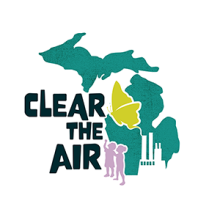Please join us for an upcoming community forum with survivors of the 1984 Bhopal gas tragedy, the world's worst industrial disaster.
-
Event: Bhopal to Detroit: No Sacrifice Zones!
-
Date: Friday, September 6, 2024
-
Time: 1PM-3PM
-
Location: Southwestern Church of God - 3032 S Fort St, Detroit, MI 48217
This year marks the 40th anniversary of the Bhopal disaster. Survivors and their descendants have fought for 40 years to hold Dow Chemical accountable, and to have the site cleaned up.
This forum will offer a reflection on the joint struggles Bhopal residents and Michigan residents face with corporations polluting our land and people, and holding polluters accountable. It will provide a space for meaningful dialogue as we contemplate our community’s interconnected past, present, and future.
Your presence at this event will be deeply valued. We hope you will join us in honoring and reflecting upon this significant occasion.
This event is free to attend.
Detroiters and Survivors of World’s Worst Industrial Accident Demand Justice from Dow
Bhopal Survivors and Detroiters link their demands for health and justice
Bhopal Survivors are on a nationwide tour on the 40th anniversary of the world’s worst industrial accident. Their demands for corporate polluters to pay is especially resonant where residents have been fighting for decades against wealthy corporate polluters such as Marathon, and in the home state of Dow Chemical.
Bhopal Survivors Stories
Bati Bai Rajak - Bati Bai was only 3 years old at the time of the disaster. Living with her parents and two brothers at the time, the children were all covered with blankets and quilts during the night of the gas leak, and had to relocate to a village outside of Bhopal the next morning. In the years since, her family continues to battle chronic health issues, such as chronic respiratory illness. She currently resides in an area where the groundwater is still contaminated due to reckless dumping of hazardous waste by the Union Carbide facility. Bati Bai plays a vital role in community organizing around the ongoing issues related to Union Carbide’s contamination, especially for mobilizing the women affected by the disaster. She coordinates grassroots research to understand the continuing impacts of chemical exposure such as documenting birth defects and testing contaminated water. She also organizes the community to advocate for their essential needs, such as access to clean drinking water and compensation for health damages. She has been in the forefront of several public speaking events, organizing and awareness raising events among Bhopal survivors.
Farhat Jahan - Farhat was 5 months old at the time of the disaster, at which time she lived with her parents, elder sisters, elder brother and her aunt. On the night of the disaster her family’s house was full of thick gas. Her mother and aunt took her in their arms and the father took the other siblings on a cycle to escape, still all of them were badly exposed. Many of the family succumbed to their illnesses in the years after the disaster, and Farhat and her mother continue to care for family members and their descendants that live with debilitating conditions due to the explosion. For the last 15 years she has worked as a community health researcher, collecting data on deaths and extent of injuries in the cohort population affected by gas and contaminated water. She also collects data on children of gas exposed parents and those affected by groundwater contamination who are being born with congenital deformities. She offers assistance on medical care and social support to families with chronic illness and children with disabilities. Farhat lives in Arif Nagar which is less than 300 meters away from the abandoned factory, where the groundwater remains contaminated.
Rachna Dhingra - Rachna Dhingra, originally from Delhi, was just six years old when the world’s worst industrial disaster struck Bhopal in 1984. She was 18 when she moved to the US with her mother to attend the University of Michigan; it was there that she first became active in the Association for India’s Development. She developed an interest towards activist and women’s issues, keenly following the struggles in the Narmada valley and in Bhopal. In Ann Arbor, she and other AID volunteers began a campaign against Dow Chemical, which later became the first chapter of the international group Students for Bhopal. After graduating with a business degree in 2000, Rachna joined a consulting firm where her first client, ironically, was Dow Chemical! After just a few months, she followed her passion and quit to join the peoples’ struggle in Bhopal where she has been since.



